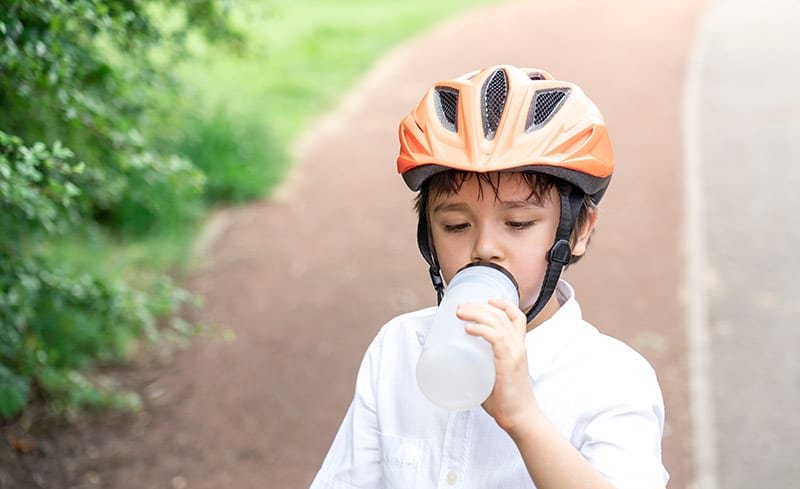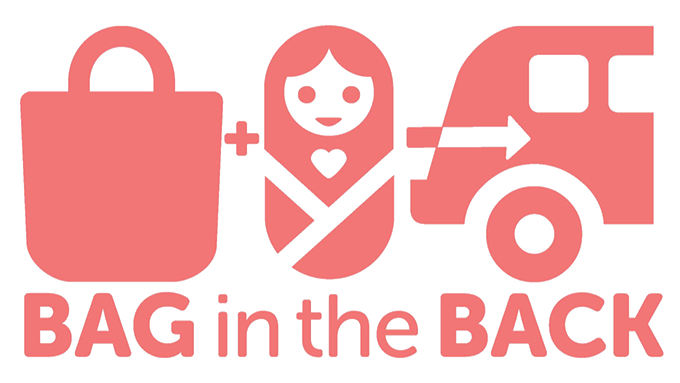
28 May Healthy Summer Habits: The Importance of Keeping Kids Hydrated on Hot Days
Warmer months are fast approaching. We’re probably all excited to venture out of our homes and get our families ready for beach trips, nature walks, swimming, and camping.
But other than planning to pack sunscreen, bathing suits, and snacks, we need to be reminded of how crucial it is for our little ones to stay hydrated during hot, sunny days. So, to help you have a safe and enjoyable summer, we’ve listed some practical tips and information to help your little one avoid dehydration.
Why Is Water Particularly Important for Children?
Our bodies are made of 70% water. And it makes up the majority of what makes our body function well – our blood, sweat, digestive liquids, organs, and muscle cells. This is why we may be able to survive a few days without food, but we won’t last long without water.
For children, water is particularly important because this is the primary way for them to regulate their body temperature. Water also helps them pass urine and stool easily. For children who are involved in sports, they need to rehydrate often, since water is lost in sweat, tears, blood, and other body fluids.
How Much Water Should Children Drink?
0 - 6 months old
During the first few months of life, an infant only needs their mom’s breastmilk or formula. In fact, babies 6 months and under are not advised to drink water.
If large amounts of water are fed to tiny infants, this can lead to water intoxication. This is a potentially dangerous health condition where electrolytes are diluted. When this happens, this can affect their normal bodily functions, which can result in seizures and low body temperature.
6 months - 1-year-old
Babies from 6 months to a year old need only about 4 – 8 ounces of water per day, because the majority of the liquids they need are from breastmilk or formula.
1 - 3 years old
As babies grow into busy toddlers, they need an estimated 4 – 5 cups of liquid drinks per day, this includes water and milk.
4 - 8 years old
As they enter primary school and their activities increase, children need to drink around 5 – 6 cups of liquids, including water, milk, or healthy, natural fruit juices.
8 years old and above
Finally, older children can safely drink 7 – 8 cups of liquids per day, including water, milk, or healthy, natural fruit juices. This is especially important as they tackle schoolwork and enjoy outdoor activities.
When children enter adolescence, however, they tend to forget to drink water regularly. In fact, according to the CDC, “ U.S. adolescents who drink less water tend to drink less milk, eat less fruits and vegetables, drink more sugar-sweetened beverages, and get less physical activity.”
Also note that water intake depends on your child’s height, weight, and other individual needs. For example, is your child an athlete? Does your child often participate in team practices? If so, do your best to ensure that they are regularly hydrated.
It’s our responsibility as parents to always ensure that no matter what age our kids are, it is crucial to make sure that they stay hydrated to keep their bones, joints, and teeth healthy. Hydration also aids in blood circulation and maintains a healthy weight well into adulthood.
What Happens When Children Don’t Drink Enough Water?
The quick answer: dehydration. No matter how vigilant we are and how much we remind our kids to drink lots of water, dehydration can sometimes happen. When not treated immediately, dehydrated children may need to be hospitalized. So knowing the common signs of dehydration in children can help you act quickly.
0 - 12 months old
- For infants, the soft spot (fontanelle) on the baby’s head feels sunken
- Wet diapers are fewer (less than 6 – 8 diapers per day)
- Unusually drowsy or sleepy
- When crying, no tears are visible
1 - 8 years old (and above)
- Less urination than normal
- Urine is darker than usual
- Lips are dry and mouth feels sticky
- The child is unusually sleepy and irritable
- Flushed, red skin
- Rapid pulse
- Headaches
- Body temperature is excessively hot or cold
Children who are exposed to too much heat run the risk of heat exhaustion, heat illness, or heat stroke. Any of these heat-related medical conditions can be anywhere from mild to moderate, depending on the situation. If your child is experiencing any of the symptoms above or is unusually lethargic, stops sweating, unresponsive, or vomiting, contact your pediatrician or seek immediate medical assistance.
Conclusion
To ensure that your child doesn’t get dehydrated in the first place, always encourage drinking water at home, and during the hot days of summer when they’re busy outside just being kids, never forget to bring water bottles for easy rehydration. You can also make drinking water fun and interesting by infusing it with delicious citrus flavors like lemons, or orange peels. Adding berries, cucumber or mint are also great, healthy options!
